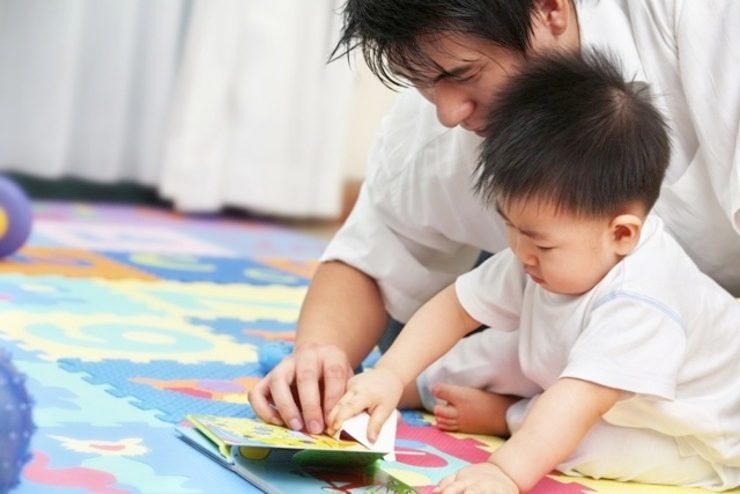SUMMARY
This is AI generated summarization, which may have errors. For context, always refer to the full article.

MANILA, Philippines – You’ve probably done it before: turn on the television or give the tablet to children so they would stop asking you endless questions, and you can go about your own activities.
But research shows that the interactions of kids at home contribute to their early language development.
“Our child care setting affects how children are exposed to language,” Jocelyn Marzan said at the presentation of her study on the progression of early language learning among bilingual Filipino toddlers on September 18.
Marzan, an associate professor of speech pathology at the University of the Philippines (UP) Manila, said Filipino families are generally extended, so a child at home can have multiple caregivers.
She explained that as the child depends on the adults, he or she gets an idea of the kinds of language needed to communicate with them.
The study, which took 6 years to complete, describes the language learning experience of 6 children from when they were one year and two months old to 5 years old.
The researchers analyzed videos of the children in their natural environment: at home, during family outings, or whatever the household would normally do.
The children came from middle income families who use both English and Filipino at home. Two kids were also exposed to Cebuano.
Rapid language development
Findings show that children do not learn to talk all at once, and learning a language is a process of developing many sub-skills.
These skills appear to be both similar to those universally learned by children all over the world, and very culture- and language-specific.
“Talk about what [children] see, hear, and feel. Talk about what they are doing or what you are doing together.”
– Jocelyn Marzan, Associate Professor, University of the Philippines-Manila
From the child’s first word until he or she reaches two-and-a-half to 3 years old, the progression of these sub-skills become rapid.
“Up to about two years of age, their vocabulary was between 100 and 200 words, but by 3-and-a-half years old, they have over a thousand unique words not pronounced perfectly but used meaningfully in their vocabulary,” Marzan said.
On average, the adults talk to the child every 4 seconds using “short and sweet” sentences, but in very varied languages.
Since a rapid lexical development can be expected during toddler years, Marzan said it is important to talk to kids a lot, with short, simple, varied, and redundant sentences.
“If you want to help children increase the complexity of what they say, first we need to teach them lots and lots of words,” Marzan explained.
Mother tongue in formal education
Adults should also watch out for small changes in language content, form, and use.
“Talk about what they see, hear, and feel. Talk about what they are doing or what you are doing together. Minsan, kailangan lang masusian (Sometimes you just have to start early),” she said.
The language development of toddlers at home will also have an impact once they enter formal education.
Knowing this, the Department of Education in 2012 started using the mother tongue as a medium of instruction for children in Kindergarten to Grade 3. (READ: DepEd adds 7 mother-tongue languages in K to 12)
“Mas madaling matutunan yung konsepto ‘pag ang ginagamit ay ‘yung kanilang nakagisnang wika….Kahit ano yung kanilang karunungan sa bahay, ito po yung ating tinatanggap, na ito po yung kanilang initial na kaalaman at walang mali doon,” Education Secretary Armin Luistro earlier said.
(It’s easier to learn the concept when [the students] use the language [they] first learned….We accept that whatever they learned at home is their initial knowledge, and nothing’s wrong with that.) – Rappler.com
Father and son image from Shutterstock
Add a comment
How does this make you feel?
There are no comments yet. Add your comment to start the conversation.